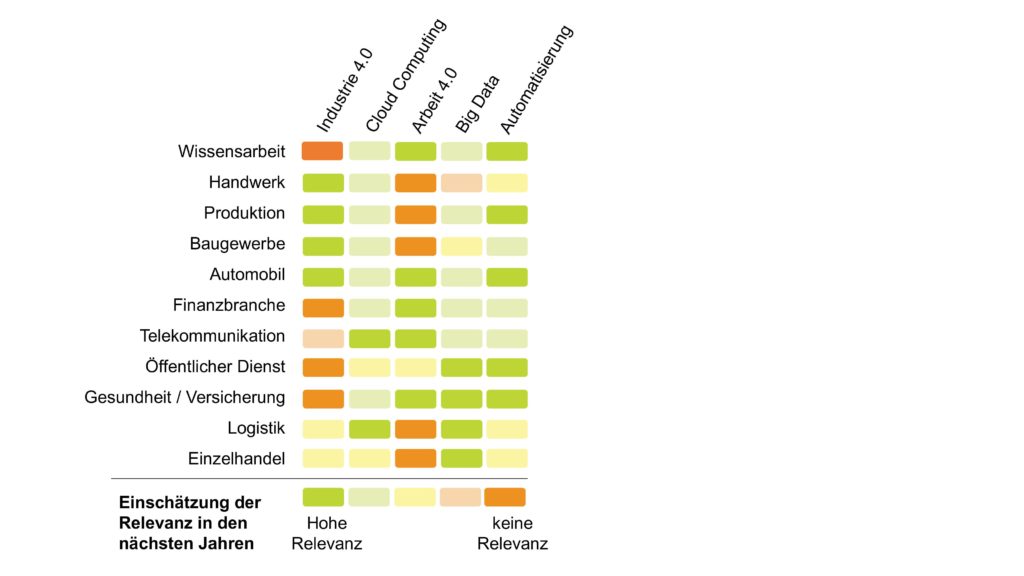Digitization can now be found everywhere and is spreading like wildfire.
I am therefore now writing a whole series of articles on the subject of digitization. My motivation behind this is that digitization means something different for every industry and type of company and I want to work out these differences. An illustration of the differences in different industries can be found in the following figure.

In this section I would now like to go into the real essence of this article and illustrate digitization in the real estate and construction industries.
Industry characteristics
The focus of the real estate and construction industry is clearly on the asset. For example, the property or the plot of land to be built on itself. The industry is known for its low flexibility and lack of dynamic processes. Because of this, digitization and agile methods have so far only rarely found their way into a more dynamic business. This is particularly due to the fact that many executives in this industry still belong to the so-called baby boomers. They still trust their old system of values instead of opening up to the opportunities and possibilities of digitization. This is due, among other things, to the low relevance of Work 4.0 in this area.
Furthermore, the business of building and managing buildings is mostly based on many small areas. These also add to the rigidity of the industry. In the area of construction alone, many parties, such as architects or project developers, are often involved. However, they do not yet know how to fully exploit an overarching technological change. At the same time, the real estate and construction industry offers a more than suitable basis for the introduction of digitization in the direction of Industry 4.0, which could significantly promote communication between the individual parties.
The current digitization in the real estate and construction industry
While global online companies such as Airbnb or WeWork have already achieved great success thanks to digitization, the use of technological aids in traditional real estate and construction is only slowly arriving. Most companies already have the option of making contact online, but at the same time the majority of companies in this industry still do not employ managers for digital topics.
Only a few innovative companies have so far been using digitization in the form of, for example, crowd investing on the Internet. Some also rely on the digital recording of data on buildings and properties. They use this to analyze their internal decisions or to provide the customer with important information in advance.
Despite the advantage of this approach, most project developers usually have to compile this data themselves, which is a time-consuming process due to the lack of agile methods.
Advantages of digitization in real estate and construction
The aim of digitization in the real estate and construction industry will, among other things, be to consolidate one’s own market position and assert oneself between competitors. In addition, it is hoped that technological measures will result in improved company key figures such as increased sales. But also in the area of agile corporate management, digital leaders are increasingly needed to promote flexibility and technological transformation.
In addition, the future of the construction industry will be shaped by digital innovations such as 3D printing, virtual reality and blockchain. This is intended to support the industry particularly in the areas of planning, construction, sales and leasing.
In the real estate business, smart homes will continue to gain in importance and enable customers to network their own four walls. Overall, building information modeling software will be used to optimize tasks such as the planning, execution and operation of buildings and real estate.
Tip:
If you are as excited about this topic as I am, then you can find the entire article series here !



